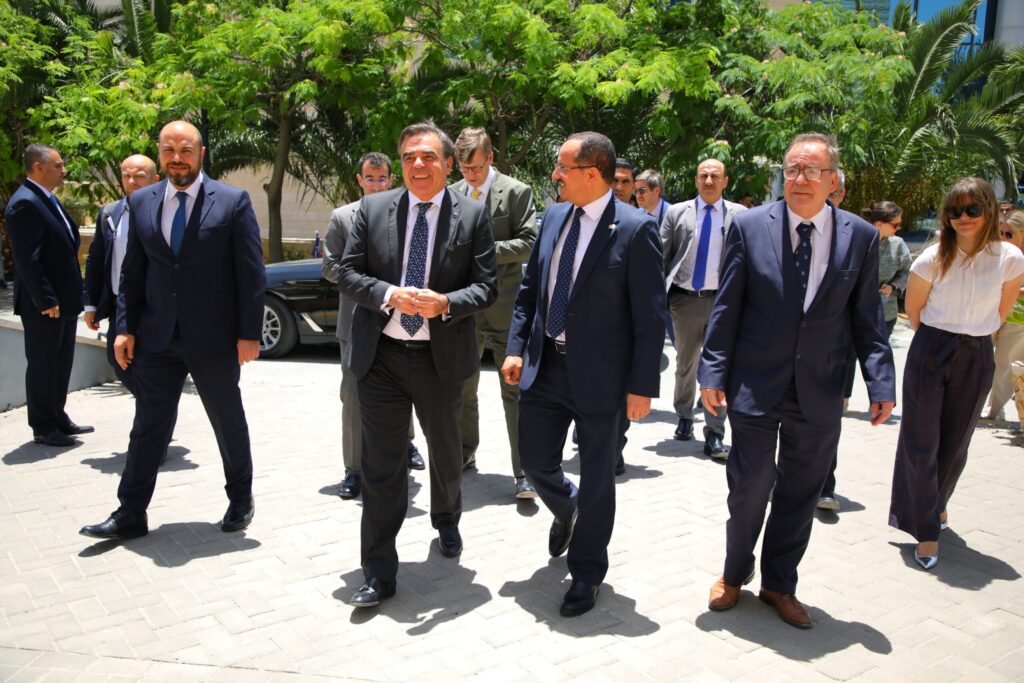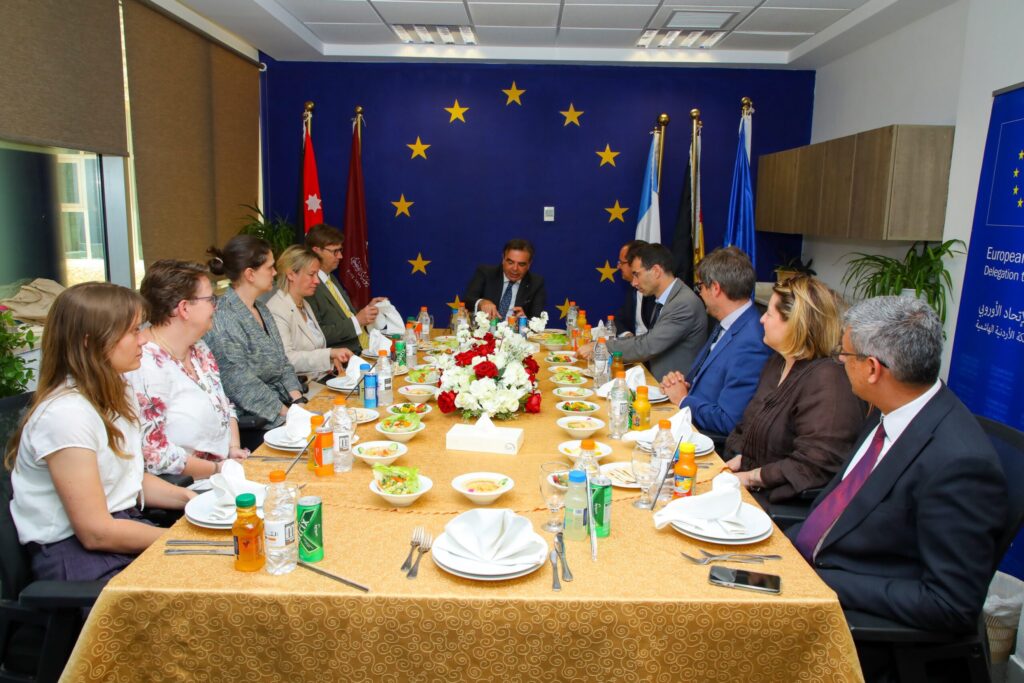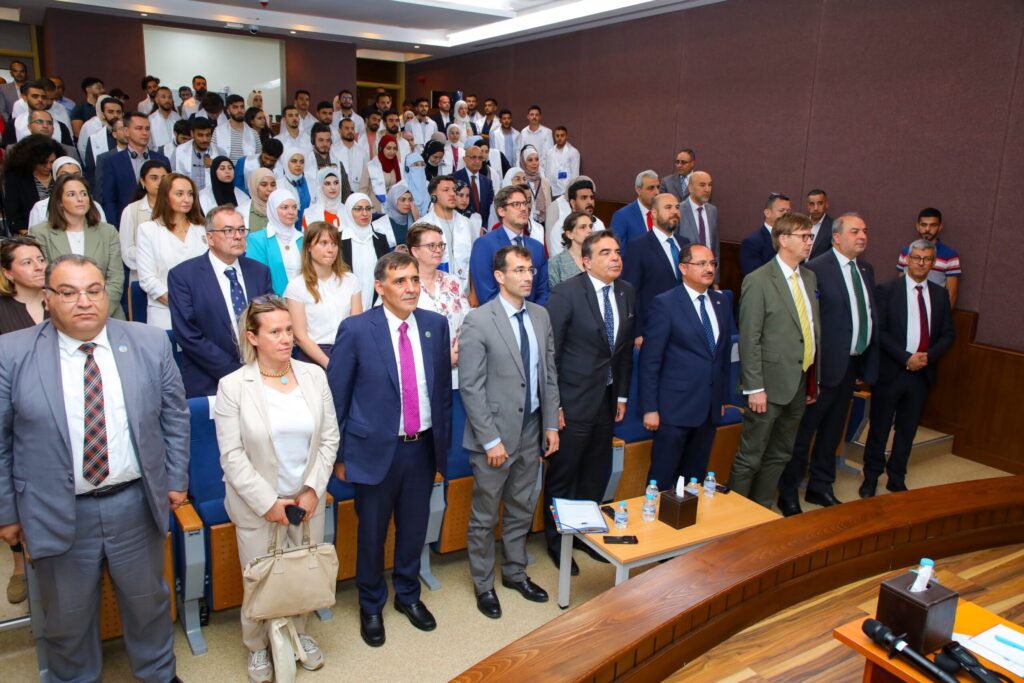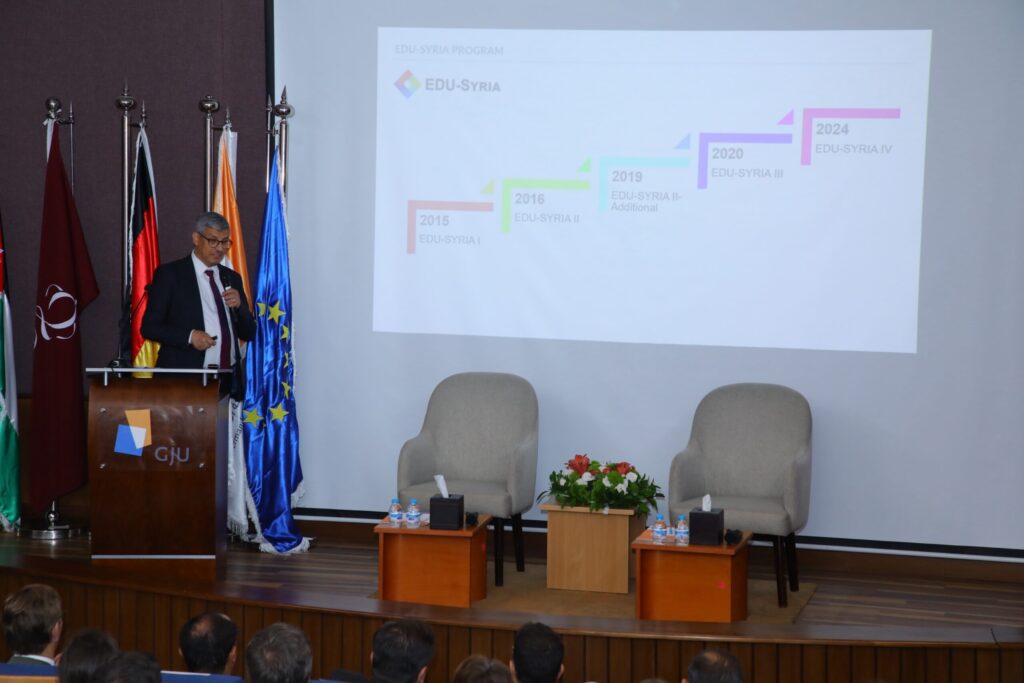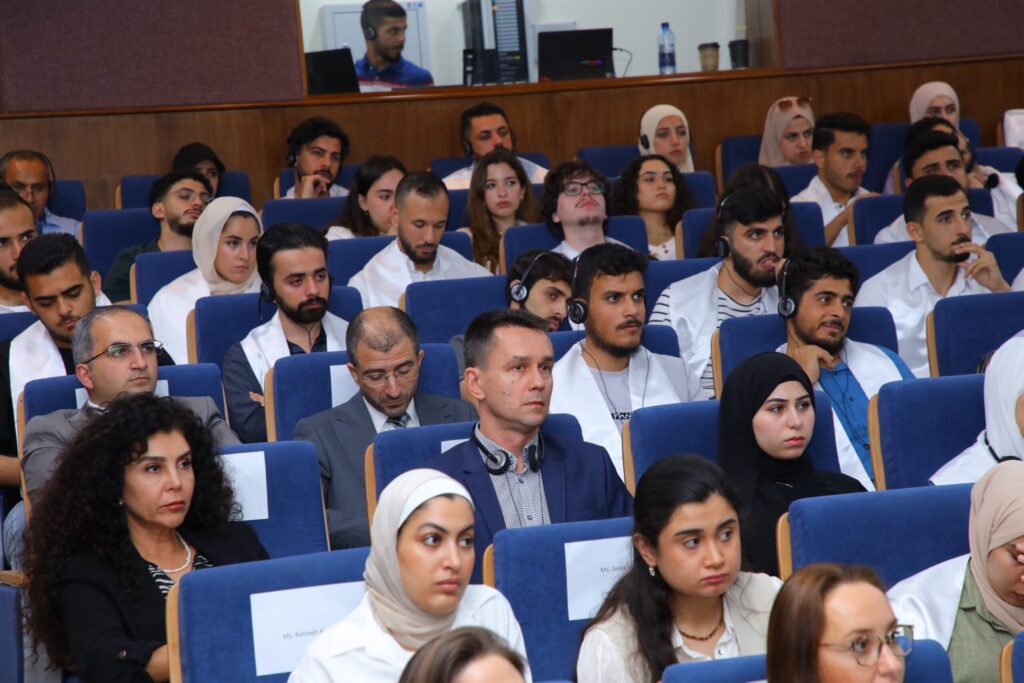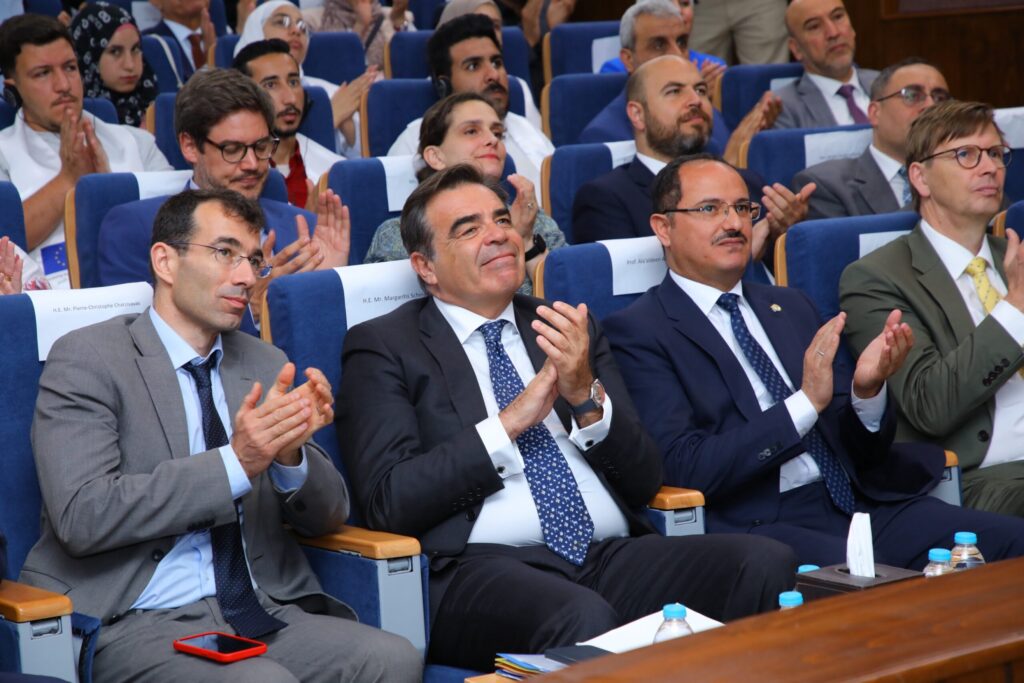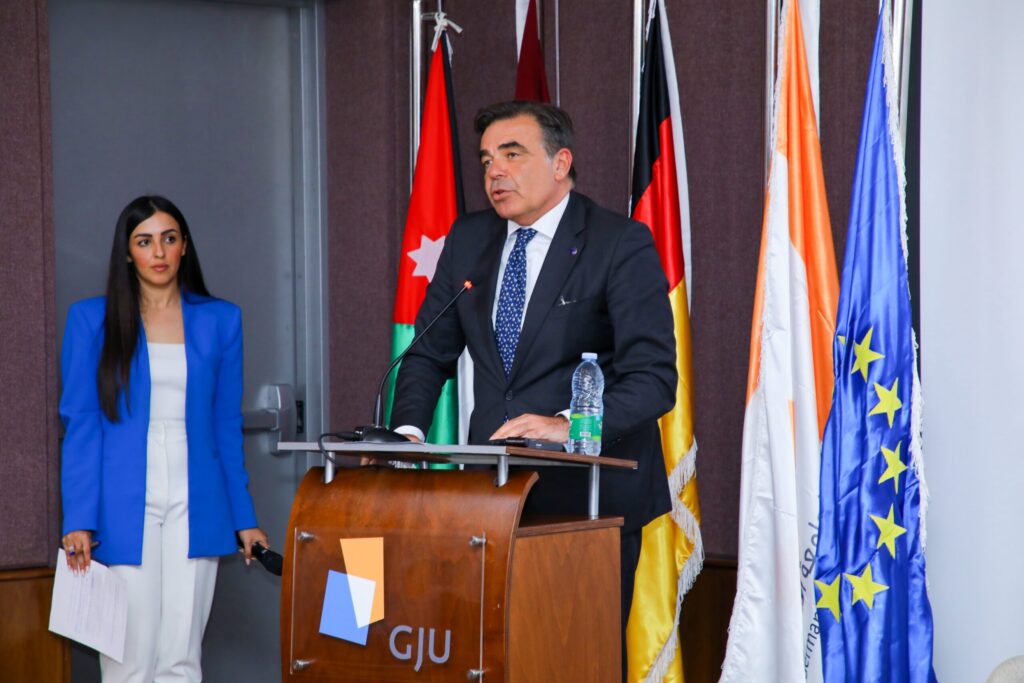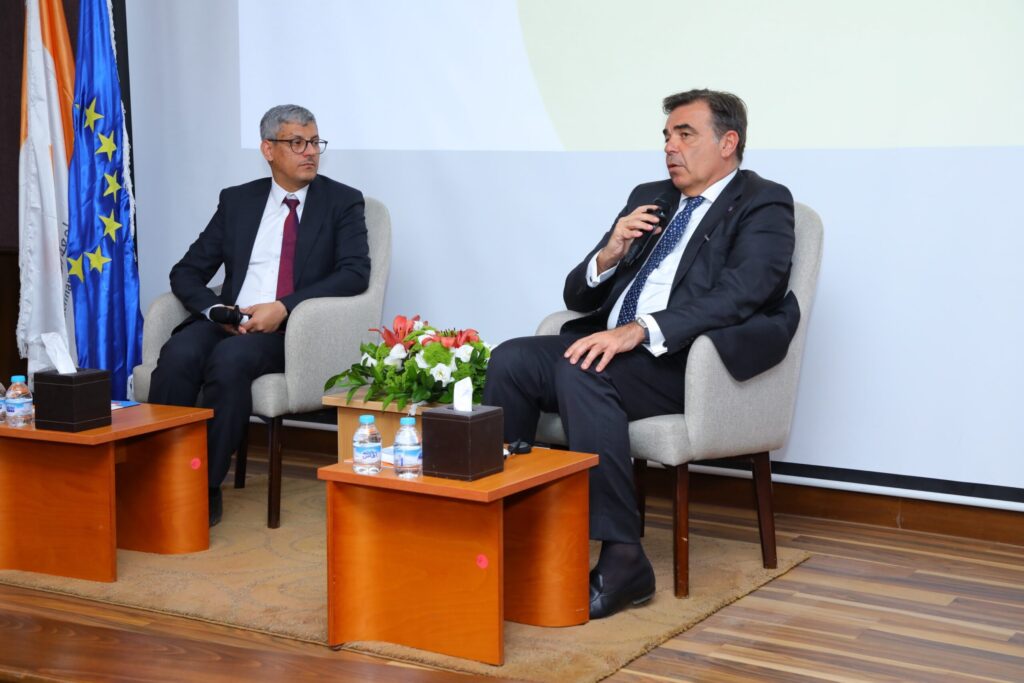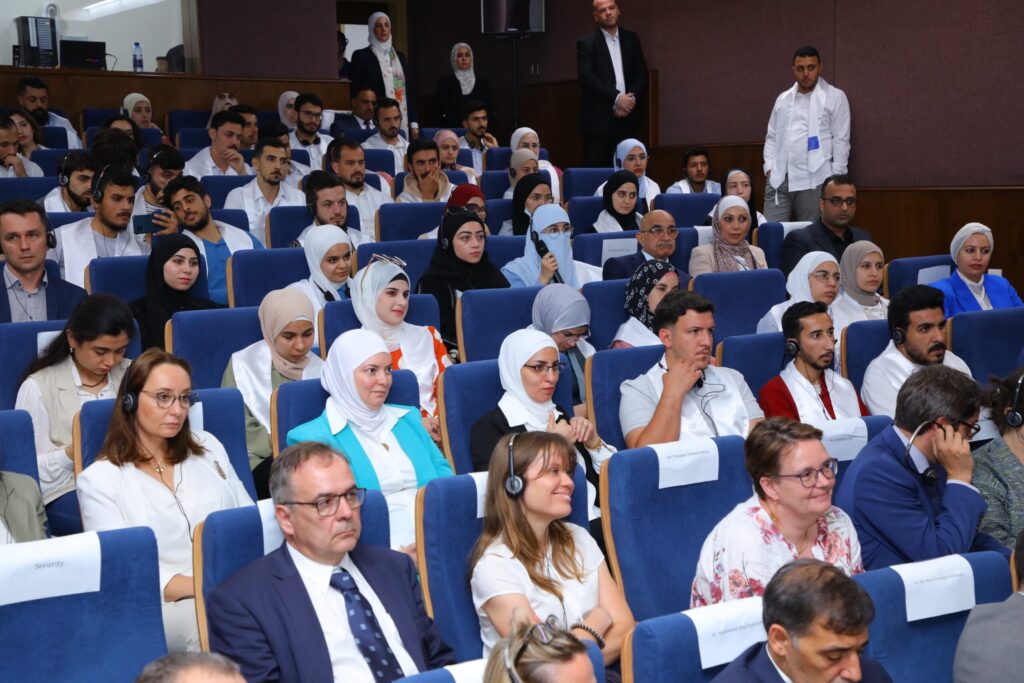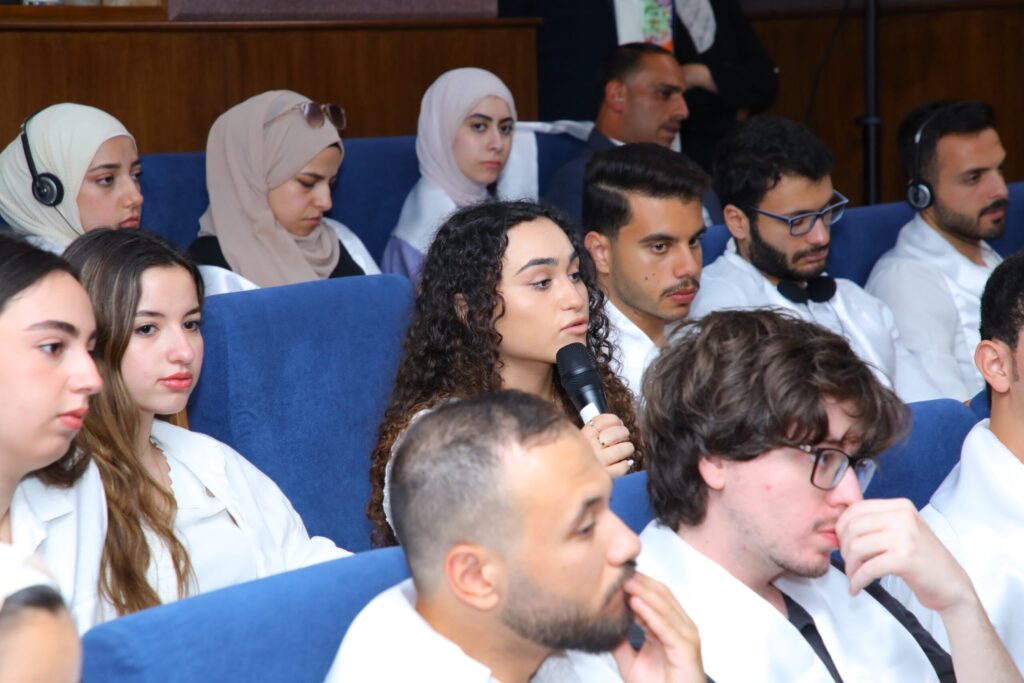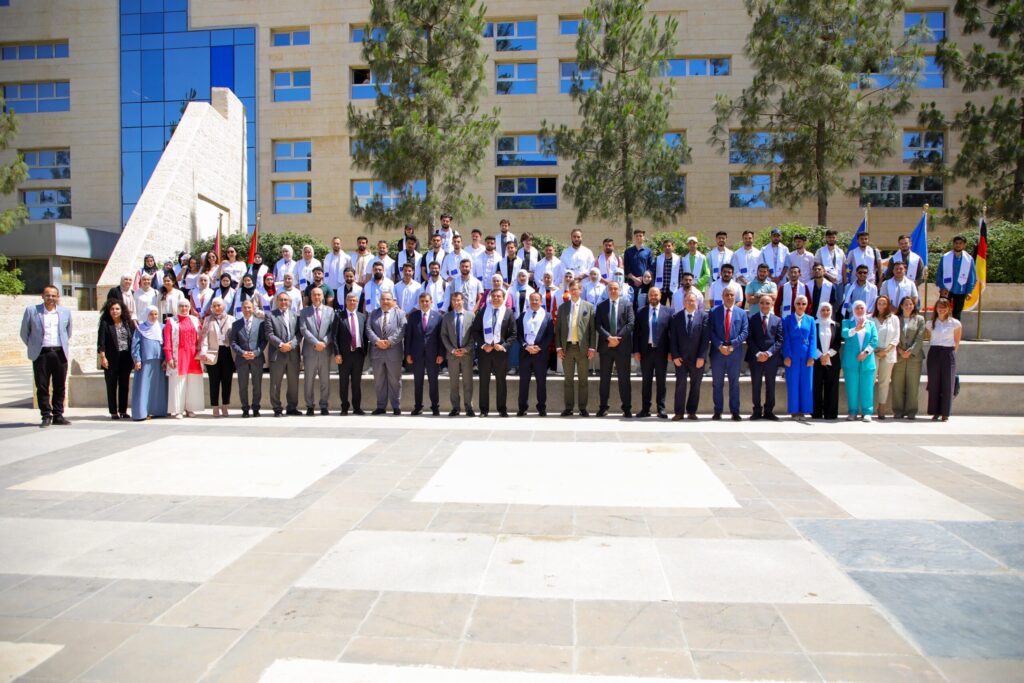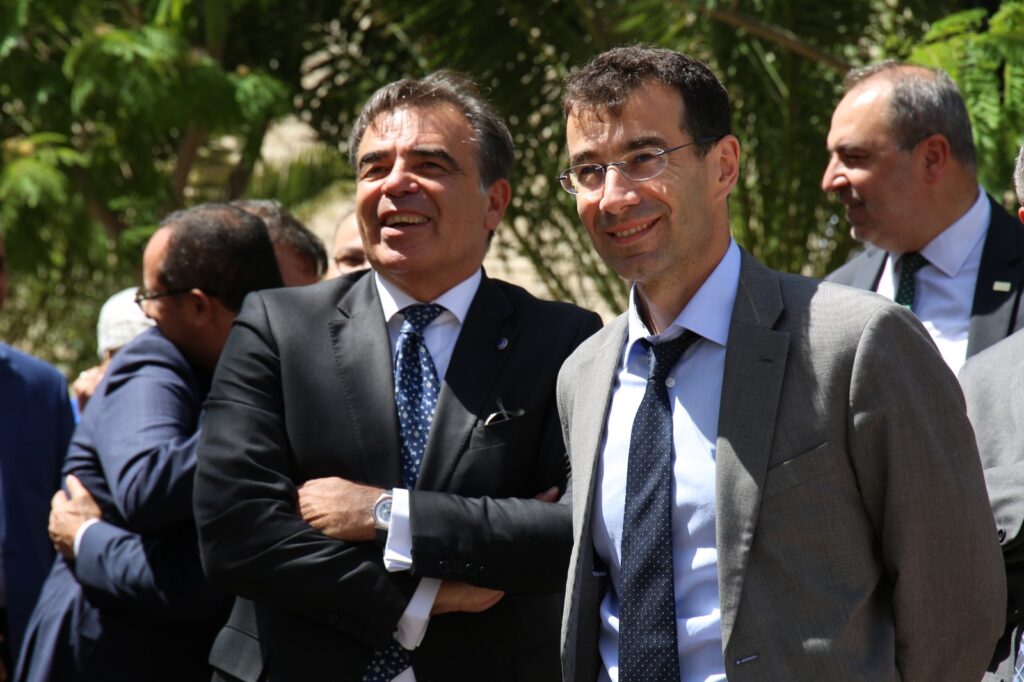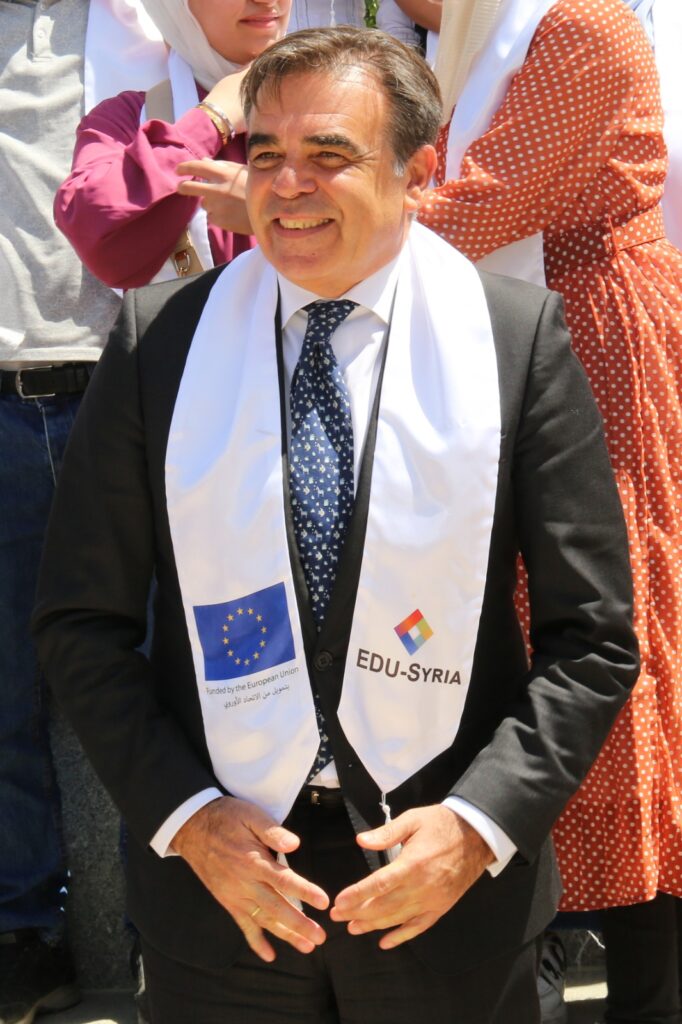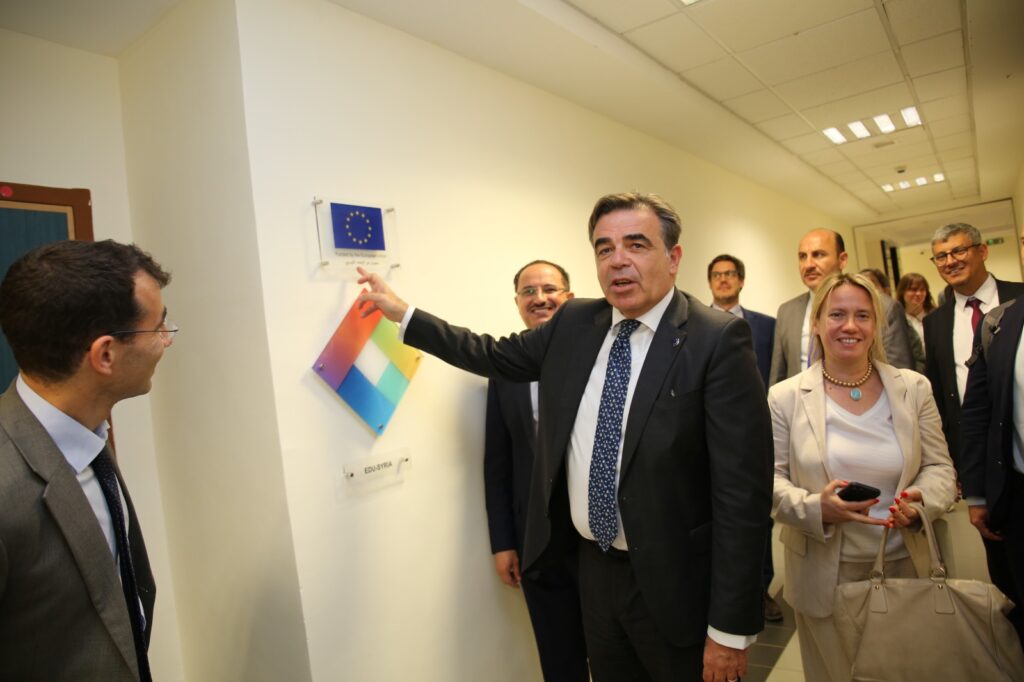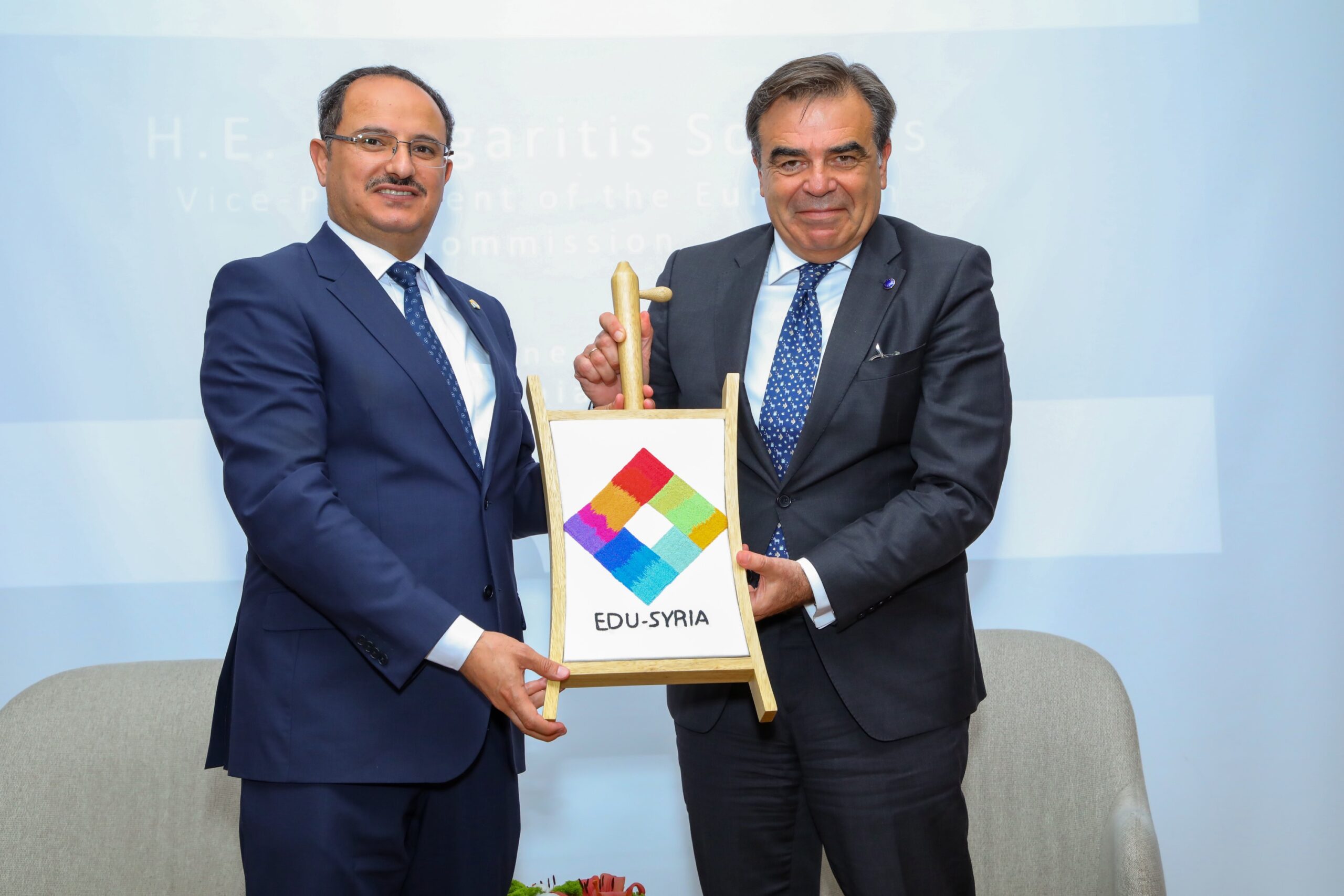
Vice-President of the European Commission Visits German Jordanian University
Amman 4th June 2024 – His Excellency Mr. Margaritis Schinas, Vice-President of the European Commission, visited the German Jordanian University (GJU) to meet with students from the EDU-SYRIA Scholarship Program and the Erasmus+ program. The visit was attended by the German Ambassador to Jordan, Mr. Bernhard Kampmann, and GJU President, Prof. Ala’aldeen Al-Halhouli.
During his visit, Mr. Schinas expressed his delight at the cooperation and diversity between Jordan and Europe. He highlighted Madaba’s significance as the city of mosaics and the location of the Orthodox Church of St. George, exemplifying coexistence among different religious communities.
Mr. Schinas emphasized the European Union’s commitment to strengthening bilateral programs, particularly EDU-SYRIA and Erasmus+. He noted that both sides aim to enhance cooperation, offering more educational opportunities to young people. He encouraged students to seize these opportunities, pursue their dreams, and persevere despite challenges.
He also discussed the European Union’s role in supporting regular migration, asylum, and youth development. The Erasmus+ program enables students to study at European universities with EU funding, while the EDU-SYRIA program provides scholarships for Syrian and Jordanian students to study at local universities in Jordan.
Professor Ala’aldeen Al-Halhouli reviewed GJU’s progress since its establishment in 2005, a collaboration between Jordan and Germany. He highlighted the university’s applied scientific approach and its role in fostering innovation, cultural exchange, and cooperation between Jordan, Germany, and the broader European Union.
Professor Dhiah el Diehn I. Abou-Tair, Director of the EDU-SYRIA scholarship program, provided an overview of the program’s impact since its inception nine years ago. Supported by the European Union, the program has granted approximately 38 million euros and awarded 4,685 scholarships to Syrian and Jordanian students, with 70% going to Syrians and 30% to Jordanians. The program, managed by GJU in collaboration with various local and international institutions, continues to provide scholarships to deserving students.
Mr. Schinas also engaged with students, addressing their questions about the future of scholarship programs for Syrian refugees, the continued support for Syrian refugee communities and their host communities, as well as the EU’s ongoing assistance to Palestinian communities through support to UNRWA.
